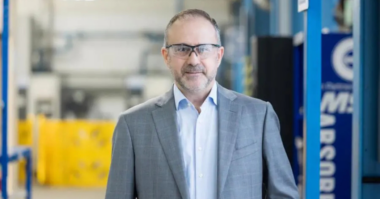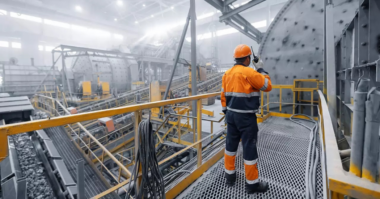Contributor: Dorota Zoldosova, Head of Marketing and Communications, Sulzer Chemtech Ltd.
Sulzer’s automated weld overlay repair improves efficiency for Lisahally biomass power plant
Biomass is becoming an increasingly popular fuel solution for power generation. It is one of several technologies being implemented to improve the sustainability of power supplies as demand continues to increase. As with all facilities, regular maintenance is required to ensure operability and any repairs need to be carried out quickly and to a high standard. When the walls of the boiler in Lisahally Power Station, in Northern Ireland, had sustained erosion and corrosion damage, Sulzer used its automated weld overlay technology to extend the service life of the boiler and ensure that the plant could continue to run at peak performance.
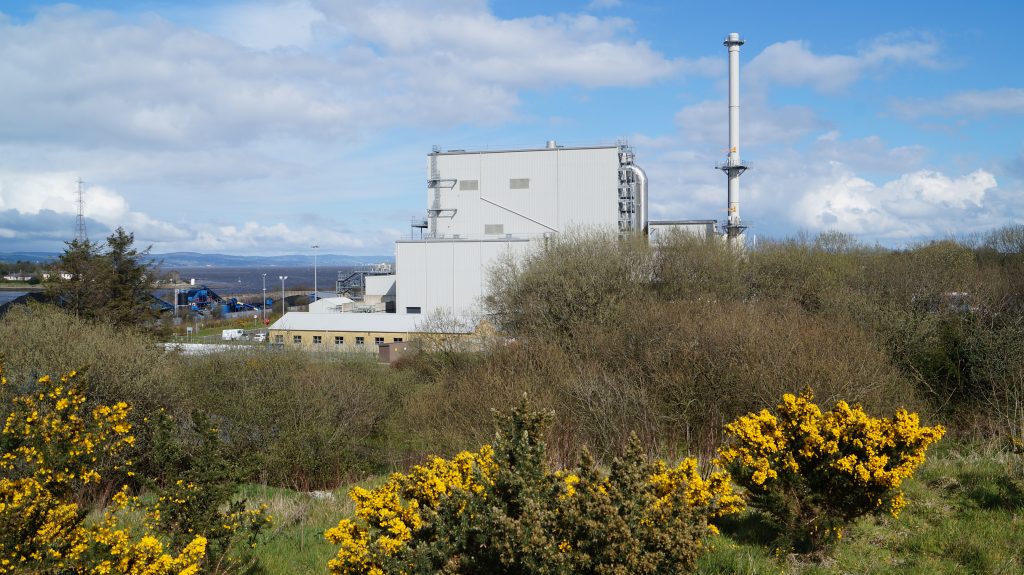
Lisahally Power Station, located in Londonderry, Northern Ireland uses recycled wood to generate heat and power that is supplied to 30’000 local homes and businesses.
The fuels used to operate biomass power plants cause corrosion and erosive wear in boilers. In fact, biomass can release contaminants, such as alkali metals, chlorine, sulfur and other corrosive chemicals, when burned. As a result, regular maintenance is fundamental to maximize the lifespan and reliability of equipment in these power stations as well as ensure plant availability, performance and efficiency.
In an effort to increase the durability of its essential assets, maintenance planners at the power station wanted to repair the boiler walls with a long-lasting solution that could be completed with minimal disruption.
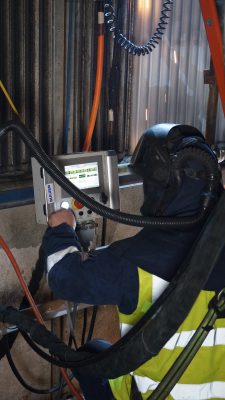
To repair the power stations boiler furnace and wall tubing, CladFuseTM, an advanced automated weld overlay technology developed by Sulzer was used.
Fueling plant efficiency and preserving equipment health
The plant, located in Londonderry, Northern Ireland, was built and is operated by Burmeister & Wain Scandinavian Contractor A/S (BWSC), one of the world’s leading medium-sized commercial scale power plant providers. The facility uses recycled wood as the main feedstock to generate six megawatts of heat (MWth) and 18.2 megawatts of power (MWe), 15.8 MWe of which is then used to power 30’000 local homes and businesses.
The key piece of equipment at Lisahally plant is the two-pass biomass grate boiler, which generates high-temperature, high-pressure steam by combusting the wood-based material fed to its furnace. The steam is then transferred to a turbine, coupled with a generator to produce electricity. Waste steam is condensed into water and fed back to the boiler via a closed loop system.
As corrosion and erosion were affecting the integrity of Lisahally Power Station’s heat exchange system, i.e. boiler furnace and wall tubing, plant managers contacted Sulzer to help them conduct the necessary repair work. The company’s Tower Field Service group is a leading provider of specialized field services with over 40 years of experience in tower, drum and vessel maintenance, repair and revamps. “The tendering process was very competitive and Sulzer stood out from the competition, as it offered an outstanding service package. The company was selected on the basis of its ability to deliver cost-effective and high-quality solutions for boilers,” explains Sean Hegarty, BWSC Plant Manager at Lisahally Power Station.
Weld overlay delivers quality and cost-efficient corrosion protection
As an economical and sustainable alternative to replacing the existing structures within the boiler, Sulzer and BWSC decided to cover the damaged membrane walls with layers of Inconel 625 to repair and protect the membrane wall. This is an austenic nickel-chromium-based superalloy that is particularly resistant to corrosion and oxidation, even in harsh environments with elevated temperatures, such as in furnaces. The additional Inconel layer would enable the boiler to efficiently maintain high steam pressure whilst protecting the surfaces from future corrosion and erosion.
The homogeneous deposition of Inconel onto the corroded and eroded surfaces was carried out onsite by automated weld overlay. Using its expertise in this process Sulzer has developed an advanced automated technology, CladFuseTM, to perform highly accurate welding operations for structures such as boilers, furnaces, vessels and towers.
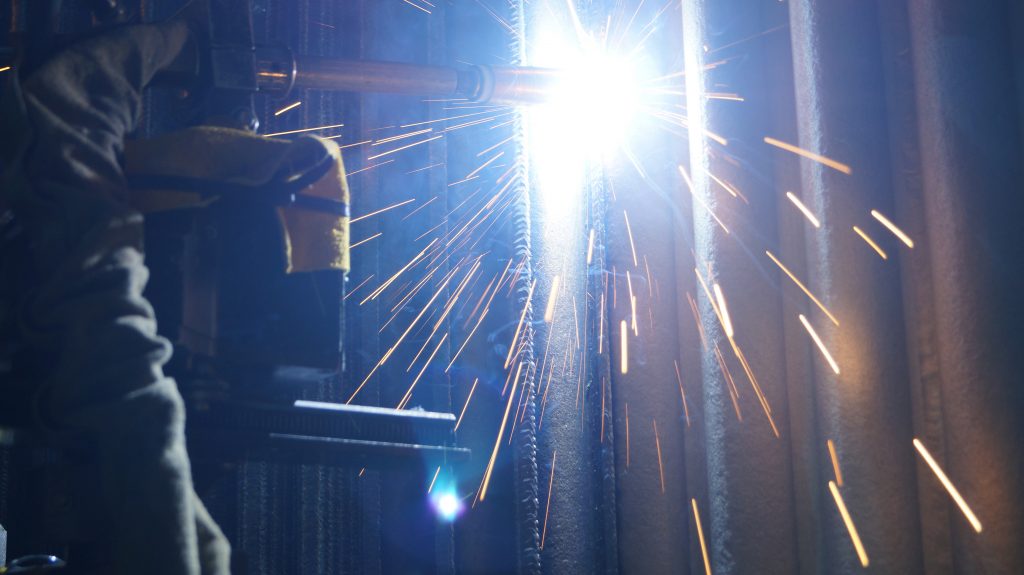
CladFuseTM repaired and protected the damaged membrane walls by accurately covering them with a homogeneous layer of corrosion-resistant alloy.
CladFuse uses a carriage that travels along a laser-levelled track system fixed to the wall that needs repairing. On the carriage, a robotic index arm moves the welding torch and the oscillator in order to create weld Inconel beads with an overlap of approximately 50% between adjacent weld beads. All the weld overlay process parameters, e.g. carriage speed or bead thickness, are controlled by a programmable logic controller (PLC). Operators can communicate with it and adjust the parameters manually using a human-machine interface (HMI).
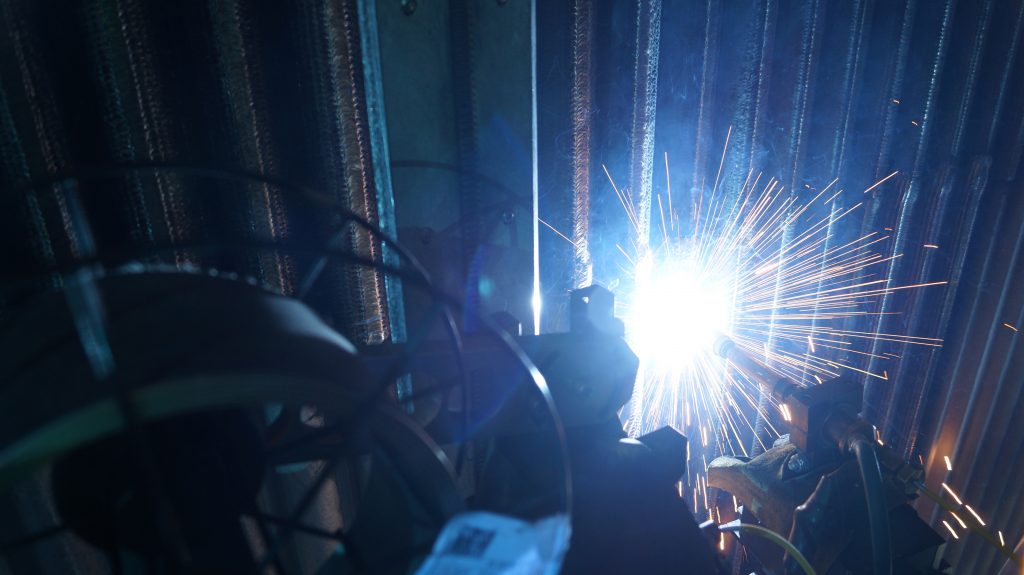 In addition to offering a cost-effective and high-quality method to repair damaged metal surfaces, the solution developed by Sulzer is extremely fast. This was particularly important for managers and operators at Lisahally Power Station, who needed the welding to be completed by the end of a scheduled outage for regular maintenance activities.
In addition to offering a cost-effective and high-quality method to repair damaged metal surfaces, the solution developed by Sulzer is extremely fast. This was particularly important for managers and operators at Lisahally Power Station, who needed the welding to be completed by the end of a scheduled outage for regular maintenance activities.
Sean Hegarty comments: “Adhering to a strict timeline and coordinating this repair with all our operations was a must. Whenever weld overlay is performed within the boiler, large volumes of different gasses are generated. Therefore, it is necessary to segregate the boiler, and it is not possible to carry out any other maintenance work in its immediate vicinity. As the power station needs to run continuously, extended shutdown and downtime would have greatly affected the plant. To ensure that this didn’t happen, Sulzer’s experts set up a number of measures and controls to ensure we could carry on conducting planned maintenance activities along the steam path.
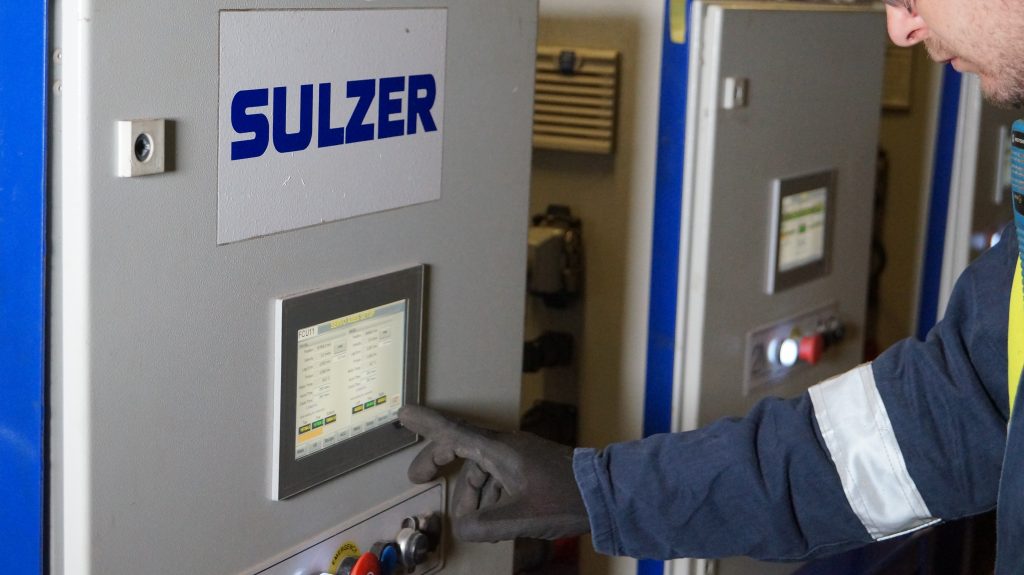
Sulzer’s automated weld overlay process is regulated by a programmable logic controller (PLC). Operators can communicate with it, adjusting relevant process parameters by means of a human-machine interface (HMI).
“The project was challenging and Sulzer’s knowledge and expertise provided a great and outstanding execution. We are extremely happy with the outcome.”
Andrew Petticrew, Business Development Manager at Sulzer Tower Field Services, concludes: “Sulzer’s extensive capabilities in automated weld overlay were crucial to complete this project. The application proves how the correct repair operation can not only reduce maintenance costs, but also improve the efficiency of power stations, delivering sustainability whilst reducing the expenses to generate energy.”
About Sulzer
Sulzer, headquartered in Winterthur, Switzerland, is a global industry leader in pumping solutions and services for rotating equipment, as well as separation, mixing and application technology.
Sulzer Chemtech provides processing industries with mission critical technologies and equipment, whether they are in the oil & gas, chemical, pharmaceutical or food and beverage sectors.
Our capabilities extend from technology licensing through products to services, offering customers a one-stop concept for the design, manufacture, maintenance, repair and upgrade of process equipment.
The range covers individual components, such as column internals, complete units, skids and technologies for refineries, petrochemical and bio-polymer plants.
With over 180 production and service sites around the world, we deliver solutions that truly support our customers.
In 2018, we achieved sales of CHF 3.4 billion with around 15’500 employees. Our shares are traded on the SIX Swiss Exchange (SIX: SUN). www.sulzer.com


